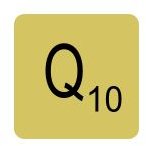How Much Power Do You Have: A Look at Power for Project Management
What is Power?
The website Mind Tools offers up a great example of a study by social psychologists John French and Bertram Raven and their Five Forms of Power. This 1959 study is still relevant today when it comes to project management leadership styles, how one leads and utilizes available power. The five elements in the study included:
- Legitimate – This type of power generally suggests those with high power titles, can rule or dictate the project.
- Reward – The power to offer rewards for a job well done and by following project rules and policies.
- Expert – Here, the person with the highest knowledge level or skillset has the most power.
- Referent – Perceived power or one offering a charismatic personality people are drawn to.
- Coercive – Power allowing for the punishment for not following project rules, procedures or policies or a dictatorship type of power.
If we look at what French and Raven studied on power, we can better understand the different types of power managers can use, their characteristics and how to succeed or lose power even if you feel like you’re holding all the power cards so to speak.
1. Legitimate
Think of legitimate power as one who has all the power to make the important decisions. If you’re a team member, this could be the project manager or team leader. For project leaders this is often upper management or the project management office (PMO). Because this type of authority often comes with the job title it can be given but also taken away.
For example, a project manager may control a current project, but upon completion, he may lose his power—such as becoming a team member on the next project via the PMO’s directive. Legitimate power only lasts as long as the authority is needed and often dismissed when it’s not needed.
Managers who fall into this category feel unstable or fear the unknown—or the end of power. Teams may know power is temporary often leading to lack of respect.
2. Reward

Project incentives are key in keeping teams motivated. With reward power, a manager can offer various types of bonuses or incentives and those under the leader’s power are aware of this authority—when rewards are given, how they are achieved, etc.
Reward power can be a very persuasive tool for some managers; however, managers holding this type of power also find an end to this king of reward power.
Project budgets or upper management may set the number of incentives allowed and once achieved, this power goes away.
Leaders who practice reward power will be able to motivate and set goals, but there are limits to what they can offer, especially if he or she must comply with a limited number available to them. Good leaders will review incentive policies in advance to ensure the power lasts throughout the project.
3. Expert
In Six Sigma projects, the Master Black Belt holds the most experience and, therefore, is the power expert. Of all the powers in project management, this is perhaps the most desirable. Expert skills means you can lead a team with the skillset and tools you possess.
A Master Black Belt may not be head of the PMO or even upper management but his credentials make him invaluable, so job title doesn’t play a part in expert power—meaning once obtained, it’s much easier to retain.
Managers who have studied and are certified in various project management methodologies will achieve this faster and gain the respect and trust they deserve and want to keep.
4. Referent

Think of referent power as a person who has that “Q” quality—much like television anchors. These types of people often find others are attracted to them based on their charisma. Referent leaders can be good and bad in managing projects.
A drawn-to personality only goes so far—managers also must possess knowledge or some sort of expertise. For those who don’t, they really only hold the power of persuasion.
On the other hand, leaders who can combine charisma with knowledge will produce happy teams and projects on time and within budget.
5. Coercive
Managers who hold coercive power are often thought of as much as those in the hit movie Horrible Bosses. They are often dictators, autocratic in nature and demanding.
Coercive power leaders have trouble gaining respect and as such, lose the trust and job efforts of their teams. This type of leader will eventually have to deal with conflicts, claims of harassment and even employee lawsuits.
A PMO or upper management may love this type of leader for their upper hand in controlling everything, however, too much control for one person will lead to team dissension and incomplete or inadequate project outcomes.
Where Do You Fit?
Take a look at your leadership style. If you possess characteristics of reward, referent and expert power, you’ll probably go further than those possessing coercive or legitimate power.
Those seeking power project management stakes should evaluate each quality and determine what works best in the situation at hand.
For example, an expert leader may also want to be a coercive leader on a fast Agile sprint, but a Total Quality Management leader may do better practicing reward and expert power.
If we do indeed default to the five powers of French and Raven, the only real way to survive in the project management world is to blend powers and pick and choose which types of power are needed and in what situations. So, where do you fit?
References
Mind Tools - French and Raven’s Five Forms of Power - Understanding Where Power Comes From in the Workplace retrieved at https://www.mindtools.com/pages/article/newLDR_56.htm
Bright Hub Resources:
A Look at the Autocratic Leadership Style
Leaderships Styles and Communication
Image Credits:
Mighty Mouse - Wikimedia Commons / Public Domain License
Success Way - Sxc.hu/dlnny / Royalty Free License
Scrabble Q - Wikimedia Commons / GNU Free Documentation License
